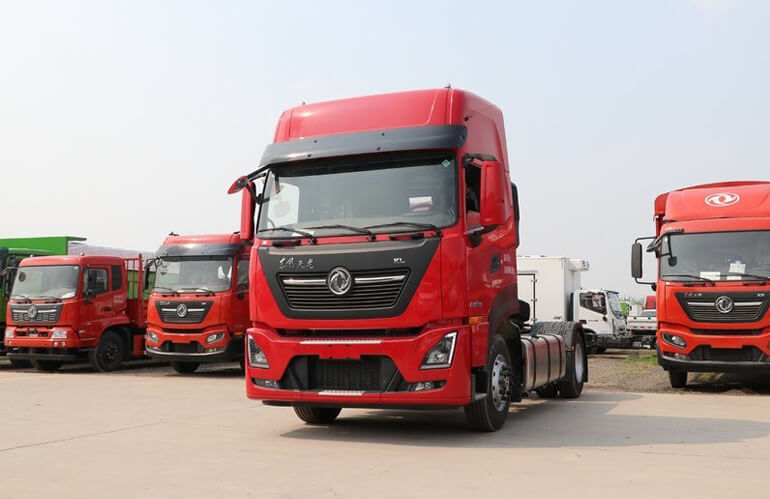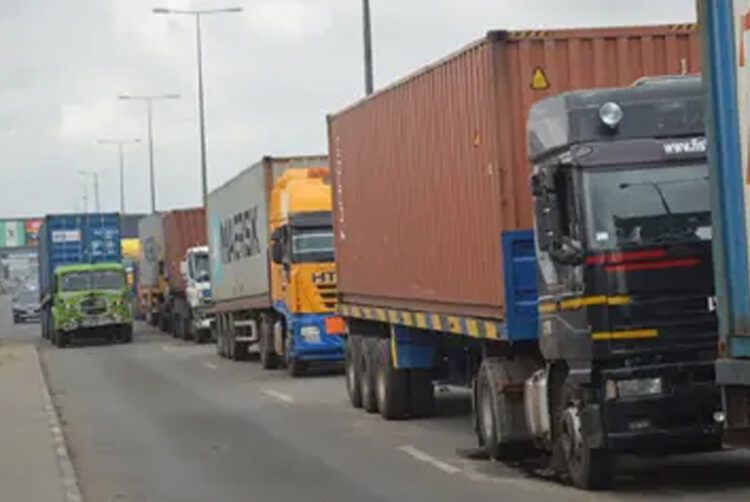It is very common for most motorists to have a little or great fear when driving beside a large truck or truck. The mere sight of a very big truck or tanker would make the driver hold on the wheels fast, looking for any means of escape.
Table of Contents
However, as much as you want to speed to get away from the truck, know that it takes longer to stop a large truck than a car, so a truck driver needs a longer following distance to be safe and in control.
When accelerating up to speed, truck drivers use up to 18 gear changes. Once they get into top gear, they do not like starting again. Therefore, avoid forcing a truck driver to slow down. Large trucks will decrease speed when going uphill. You can expect truck drivers to pick up speed when going down hills to help them get up the other side. Plan your passing manoeuvre accordingly so as not to get into a disastrous situation.
Before we move on to talk about safety tips for when you’re sharing the road with trucks, here are some things you need to understand about what makes trucks different from regular vehicles.
Difference Between Large Trucks And Other Vehicles

Large trucks can pose unique dangers to all those on the road if not handled well. The following factors make large trucks different, and quite dangerous, than other vehicles:
- Blind spots: Large trucks tend to have a reduced field of vision, because of the height of the driver’s seat, which are also known as blind spots. Blind spots are areas around a vehicle – in front, behind, and on the sides – where the truck driver’s vision is limited. The blind spots of a truck are larger than that of a car.
- Longer braking distance: A large truck’s braking or stopping distance is much longer compared to passenger vehicles due to its sheer size and weight.
- They take up more space on the road: Because of their size, trucks take up lots of room on the road. This factor alone requires other motorists to keep a safe distance and give trucks plenty of room to manoeuvre safely.
- They need wider turns compared to smaller vehicles: If you have ever seen a truck make a turn, you may have noticed that these vehicles need an additional lane of traffic to complete a turn safely. For this reason, when passing a truck, drivers should always make sure that the trucker is not preparing to make a turn or change lanes.
Tips For Sharing The Road With Large Trucks
All motorists, including truck drivers, are to exercise due care when operating a vehicle. Therefore, there are certain steps you can take to avoid a collision with a large truck:
- Always drive defensively: The importance of driving defensively cannot be overemphasised, especially when sharing the road with big trucks. Driving defensively means being vigilant on the road, controlling the speed of your vehicle, expecting the unexpected, and always being prepared to react to other drivers.
- Avoid lingering in blind spots: The largest blind spot for a trucker is the right side of the vehicle because they can hardly see from the driver’s side. Other blind spots to avoid are the front of the cab and behind the trailer.
- Allow more space for the trailer to turn: When making a right turn, truck drivers tend to move away from the curb in order to execute the manoeuvre safely. That is why other motorists must always give trucks plenty of space on the roadway.
- Keep a safe following distance: Failing to maintain a safe distance makes it more difficult to react in time to avoid a collision. Rear-end collisions, which are often caused by drivers’ inability to keep a safe following distance, are usually the most common types of large truck accidents.
- Always signal your intention to change lanes or make turns using your trafficator: Truck drivers need more time to react to other drivers stopping, turning, or changing lanes. For this reason, drivers should always use signals before executing any unexpected driving manoeuvres.
- Know how to overtake a large truck: Typically, passenger cars travel faster than large trucks, which often require them to pass trucks. However, passing a truck is not the same as passing a passenger vehicle. When passing a truck, you should always do it on the driver’s side because the right side is the truck’s largest blind spot.
- Turn off or dim your bright lights: When passing or following a truck at night, always turn off or dim your bright lights because they can blind the truck driver when they reflect off the trucker’s large side mirrors.
Following these tips and carefully driving on the road will go a long way to prevent any large truck accident cases in Nigeria. Also, large truck drivers need to be trained on how to drive a large truck.
Have 1 million naira and above to Buy or Sell Cars In Nigeria? Check carlots.ng
All rights reserved. Reproduction, publication, broadcasting, rewriting, or redistribution of this material and other digital content on carmart.ng is strictly prohibited without prior express written permission from Carmart Nigeria - Contact: [email protected]




